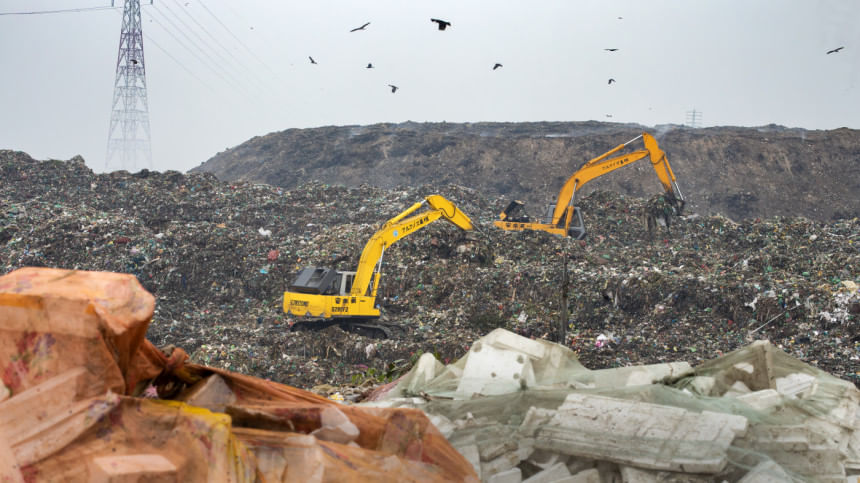Green colonialism: Explained

When you think of the word 'green', what comes to mind? Thriving ecosystems, renewable energy, or perhaps a planet that breathes a little easier. Now consider the word 'colonialism'. The image quickly reverses to a shade of control and conquest; land stripped away from its people. Two words that seem to portray utterly contrasting ideas, an ideal world versus the one we live in. But what happens when you place them side by side? Green colonialism — a term that sounds like it shouldn't exist. And yet, it quietly shapes the way the world claims to fight the climate crisis today.
In today's world, 'going green' is a phrase that catches everyone's attention. From billion-dollar climate conferences to large-scale afforestation projects, environmentalism has become a global buzzword. However, what is framed as ecological progress, in practice, often intends to conceal acts of mass dispossession and social exclusion.
Green colonialism refers to the implementation of environmental policies and projects structured around ways that justify the appropriation of land and resources belonging to local populations and communities. In a broader context, it involves how the Global North sustains its high living standards by drawing on the labour, natural resources, and environmental health of the Global South.
Developed countries often self-proclaim themselves as champions in offsetting carbon footprints, yet, in reality, much of their progress relies on outsourcing emissions-intensive activities to the Global South. That is, industries producing minerals, metals, and raw materials for 'green' technologies are concentrated in developing countries, where environmental regulations are weaker and therefore, easier to bypass.
For instance, cobalt mining in the Democratic Republic of Congo (DRC) supplies the lithium-ion batteries and wind turbines powering Europe and North America. Congo, which holds approximately 70 percent of the world's cobalt reserves, bears the exploitation of tens of thousands of child labourers working under hazardous conditions to support their families. These operations allow wealthy nations to reduce their domestic carbon footprints, however, global emissions remain largely unchanged.
This is because the carbon-intensive processes are simply shifted elsewhere rather than eliminated — a phenomenon known as carbon leakage. Industries involved in the extraction, processing, and manufacturing of materials for renewable technologies continue operating unabated in the Global South. This means that the environmental burden is exported: forests are cleared, soils degraded, and local air and water pollution increase, while consuming countries benefit from green energy. Essentially, the world's total carbon output doesn't decrease, rather it is redistributed.
A slightly different example of such colonial exploitation becomes evident in Israel's ongoing campaign of mass destruction against Palestinian olive groves. Olive trees have long remained symbolic of the land of Palestine, besides significantly contributing to around 14 percent of the country's entire economy. To date, over 800,000 olive trees have been illegally uprooted across the West Bank and occupied Palestine since the year of 1967.
In place of indigenous cultivation, Israeli authorities and affiliated bodies have implemented expansive afforestation campaigns, primarily using non-native pine trees and eucalyptus. These campaigns are framed as ecological restoration, yet in practice, they function to mask the destruction of Palestinian villages, fortify territorial claims, and prevent refugee return.
Pine forests, ecologically disruptive and highly flammable, are planted atop ruins of depopulated villages to conceal former Palestinian communities. The majority of these trees are not native to the region and have degraded the local environment, acidified the soil, and even led to massive wildfires.
Similar infrastructures involving green initiatives to disguise colonial practices also evolve within individual countries. For instance, the pursuit of renewable energy and conservation efforts, at times, places an immense burden on marginalised populations, particularly indigenous communities.
In Bangladesh, forest conservation policies have long mirrored the benchmark of green colonialism. Indigenous and forest-dependent communities are systematically excluded from decision-making, evicted without consent, and criminalised through false cases. Social forestry schemes benefit elites and forest officials, sidelining actual community members. Declarations of safari parks, sanctuaries, and reserved forests routinely occur without community consultation, stripping locals of traditional land rights.
While indigenous communities are displaced in the name of protecting biodiversity, these forests are simultaneously opened up to exploitative commercial interests and environmentally devastating mega-projects. The Forest Department's failure to oppose projects like the Rampal coal Power Plant near the Sundarbans, despite strong environmental objections from international bodies such as UNESCO and the Ramsar Convention, clearly exemplifies its complicity.
This pattern extends across much of Asia, where large-scale renewable energy projects marketed as clean solutions often conceal patterns of exploitation. Built without proper consultation or fair compensation, they displace rural and indigenous livelihoods, erode land rights, and bring pollution, water scarcity and health risks, ultimately benefiting corporate and state interests while burdening the communities that bear its environmental cost.
In advancing climate action, the common ground is, therefore, not environmental ambition, but the centralisation of power and the erasure of local voices. Our current approach to environmentalism is one where the rights of indigenous people are treated as expendable. Green colonialism, in this sense, is not a contradiction; rather, it is the repackaging of dispossession in the language of climate action.
Despite being the most vulnerable to the impacts of the climate crisis, indigenous communities are consistently excluded from the very policies meant to address it. Yet without protecting those on the frontlines, climate action itself becomes hollow. If environmental policies continue to prioritise control over justice, profit over people, and exclusion over participation, they ultimately fail everyone. A climate strategy that does not centre the rights, knowledge, and resilience of indigenous people is not a solution — it is a continuation of the crisis under a different name. Punomi Rahman Titir is a contributor at The Daily Star. Find her at [email protected]

 For all latest news, follow The Daily Star's Google News channel.
For all latest news, follow The Daily Star's Google News channel. 










Comments